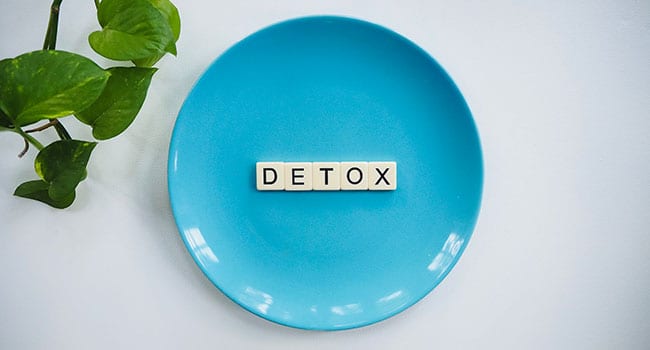 If you follow health tips in some media, you’d think the nutritional sciences are a mess: Is butter good for you or bad? Should I eat breakfast or skip it? Should I eat like a caveman? Or should I eat more like a bird?
If you follow health tips in some media, you’d think the nutritional sciences are a mess: Is butter good for you or bad? Should I eat breakfast or skip it? Should I eat like a caveman? Or should I eat more like a bird?
Alternative facts are not a new concept in the field of nutritional science. Too bad so many people fall for them.
Fortunately, it’s still possible to use scientific evidence to separate the wheat (safe to eat, unless you have celiac disease) from the complete garbage. So here are three popular nutrition diet trends to steer clear of – based on the best evidence.
Skip the detox or cleanse
Anyone selling a diet, juice or anything else to help you detox or cleanse is going beyond the bounds of good evidence.
The concept of detoxes or cleanses hinges on the idea that our bodies are being filled up with toxins that are making us sick and need to be removed. But just ask “What toxins?” and you get the sound of crickets chirping.
Scientists have long understood that our bodies have developed sophisticated pathways that naturally detoxify and then excrete unwanted substances. Some of the substances we need to get rid of are created by our normal bodily functions (bilirubin, urea), some we ingest on purpose (drugs, alcohol) and others come from our environment (pollutants, heavy metals).
The detoxification pathways depend on the substance, but typically include conversion to a less toxic form or involve binding with proteins, making them easier to excrete in the urine or gastrointestinal tract.
Skip the alkaline/pH diet
One of the biggest proponents of pH diets eneded up in jail for practising medicine without a licence – and these diets, which are often promoted to cancer patients, simply don’t work.
These diets promote eating foods that are alkaline and limiting acidic foods, with the idea that acidity can accumulate and is harmful to the body.
But our body’s pH range is not influenced by what we eat or we’d all be dead; our proteins would denature and critical enzymes in our body would stop.
Fortunately, our bodies can maintain a tightly-controlled pH range. This is a process referred to as acid-base homeostasis. Values outside of the controlled range are caused by serious health problems, like diabetic acidosis or kidney disease, not by eating too much fruit.
People promoting pH or alkaline diets are full of something, not shame. They can be ignored because taking health advice from someone who would fail basic biochemistry is a bad idea.
Skip the intravenous vitamins and nutrients
Intravenous (IV) nutritional therapies, which deliver vitamins, minerals and amino acids intravenously, are marketed for just about anything – hangovers, the immune system, athletic ability and cancer.
Such IV therapies have been endorsed by celebrities and athletes, and are happily sold by your nearest alternative health provider. The problem is, there’s no evidence that they work and they may be dangerous.
IVs have an inherent risk of infection and may cause toxicity as a result of bypassing the normal digestion process.
There’s a place in medicine for receiving nutrition by IV – it’s called total parenteral nutrition – but only if you are very ill or have a condition that prevents you from absorbing nutrients properly.
Scientists know that nutrients or foods should be eaten and not hooked directly to our veins – yes even coffee. Also, speaking of coffee, we should stick to drinking it with our mouths.
So what’s good for us, what should we eat?
Evidence tells us that healthy eating involves vegetables, fruits, nuts and beans – and not too much food. There are many things you can do to help your body stay healthy that don’t involve paying anyone. Start by not smoking, being physically active and getting enough sleep.
I know, it’s pretty boring compared to magic juice.
One final suggestion for staying healthy: don’t go to service providers who sell detoxes, cleanses or IV nutritional therapies. Don’t visit their websites, don’t like or share their posts, and do not buy their books.
Friends don’t let friends get taken advantage of by fake nutrition.
Dylan MacKay, PhD, is a nutritional biochemist at the Richardson Centre for Functional Foods and Nutraceuticals in the Department of Human Nutritional Sciences at the University of Manitoba in Winnipeg.
Dyllan is a Troy Media Thought Leader. Why aren’t you?
The views, opinions and positions expressed by columnists and contributors are the author’s alone. They do not inherently or expressly reflect the views, opinions and/or positions of our publication.


